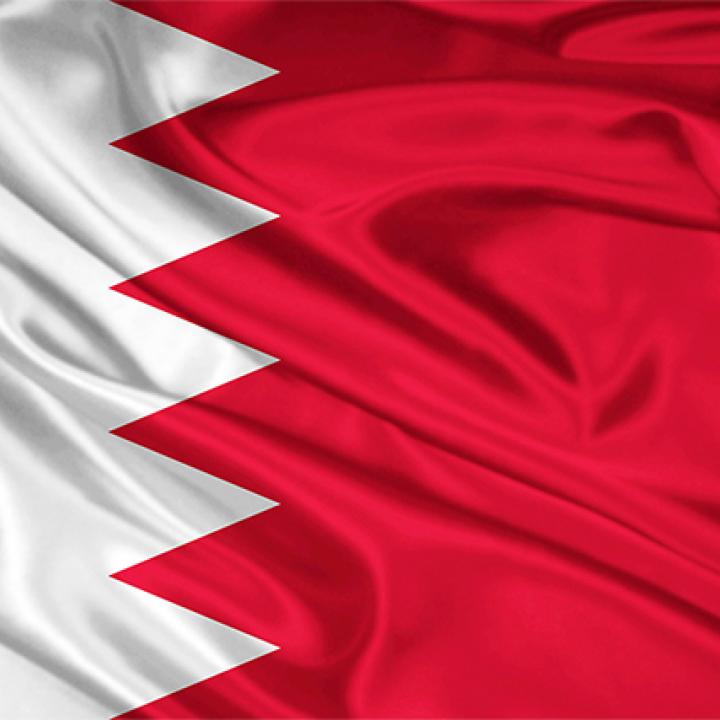
- Policy Analysis
- Fikra Forum
New Bahrain Poll Reveals Support for Russia, Entente with Iran, Split on Israel

A rare public opinion poll in Bahrain, commissioned by the Washington Institute and conducted in March/April by an independent regional firm, shows surprisingly high levels of popular approval for Russia—including its war aims in Ukraine.
On Iran, Bahrainis (especially among the country’s Shia majority) mostly favor rapprochement, and oppose military action or cooperation with Israel against it. Popular acceptance of business ties with Israel is steady, at around 40% in this small yet strategic island nation that joined the Abraham Accords in late 2020. But other measures show strong anti-Israel sentiment, probably in part because the survey was taken during Ramadan, a time of heightened tension with the Palestinians.
Russia Eclipses U.S. as Favored Partner; China’s Role Seen as Mostly Economic
One striking finding from this survey is the nearly uniformly positive Bahraini popular attitude toward Russia. The public describes Russia as mainly “a friend” (20%), a “security partner (34%), or an “economic partner” (41%). Even more striking is that fully three-fourths of Bahrainis agree (at least “somewhat”) that “the best outcome” in Ukraine would be “a Russian victory, including the annexation of significant Ukrainian territory to Russia.”
These numbers contrasts sharply with two 2023 surveys, which showed majorities across the Arab Gulf and Levant states saying that Russia’s military actions in Ukraine would have negative effects on the region and blaming that operation for the rise in local food prices. The new findings clearly suggest success for the intensive Russian information campaign in the Middle East throughout the past year.
By comparison, the U.S. fares somewhat less well in Bahraini public opinion. Bahrainis see the U.S. as mainly a friend (12%), a security partner (26%), or an economic partner (34%)—But one-fourth say the U.S. is “a competitor” (7%) or even “an enemy of our country” (18%). China is seen more positively overall, though mostly as an economic partner (60%).
Asked more specifically for their priority request from the United States, the top choice among four options is “do more to help resolve the Palestinian-Israeli conflict” (33%). Behind that selection are the following: “Provide more economic aid and investment in Arab countries” (24%); “Do more to promote democracy and human rights in Arab countries” (22%). Only in last place, with just 10%, comes “Do more to help counter the threats we face from Iran and its proxies.”
Nearly Half Accept Some Economic Links with Israel, But Very Few Want More
On Bahrain’s “normalization” with Israel under the Abraham Accords, findings are mixed at best. Asked about “some business ties with Israel” if that would “help our economy,” 40% answer in the affirmative. This is just about the same proportion as in responses to very similar questions posed each year since the Accords were signed in September 2020. But the view that those accords are having a positive effect on the region is just half as prevalent, at around 20%. This figure too is holding steady lately after an initial burst of higher approval right after the accords were first announced.
Related questions asked for the first time in this survey, however, show widespread opposition to closer ties with Israel. Only very small minorities, around 10% or less, now favor cooperation with Israel against Iran, or even accepting emergency humanitarian aid from the Jewish state. These figures probably reflect, to some extent, the timing of the survey during a tense Ramadan in Israel/Palestine, so further surveys will be taken to confirm or qualify these findings.
More Positive Views on Israel Emerge As Well
At the same time, Bahrainis tend to oppose armed conflict with Israel, and to discern some potential benefit from the current Israeli political demonstrations. Two-thirds (67%) say that “Hamas firing missiles or rockets against Israel from Gaza” would have “negative effects on the region.” Nearly as many (62%) foresee some positive effects from “the mass protests by some Israelis against the new Netanyahu government there.” And views are split – 44% positive, 54% negative – regarding “the agreement on a maritime boundary between Israel and Lebanon.”
Sharp Sectarian Split on Iran’s Role, But Most Overall Oppose Military Strike Against It
Iran is the one issue on which this survey, as in previous ones, reveals a major attitudinal divergence between Bahrain’s Shia majority and the ruling Sunni minority communities. Among the latter, just 10% see Iran as a friendly country, while two-thirds label it a competitor (27%) or even an enemy (40%). But among Bahrain’s Shia, these proportions are reversed: half (52%) call Iran a friend, and another 42% see it mainly as a security or economic partner; a mere 4% of Bahraini Shiites say Iran is a competitor or enemy.
Nevertheless, the large majority of Bahrainis—both among Sunnis (79%) and Shia (83%)—agree with the following purposely provocative proposition: “A major American or Israeli military strike against Iran would be too dangerous, and a bad idea for our country.” Notably, however, opinions are divided within both communities about the recent “restoration of diplomatic relations between Saudi Arabia and Iran.” Among Sunnis, two-thirds (66%) see that as negative, but one-third (32%) say it is positive. Among Bahrain’s Shiites, those proportions are exactly evenly split: half (49%) say negative; and the other half (49%) say call it a positive development for the region.
Methodological Note
This analysis is based on findings from a survey among a representative, random national sample of 1,000 Bahraini citizens. Sample selection followed standard geographic probability procedures, yielding a statistical margin of error of approximately 3 percent. The survey was conducted by a highly qualified, experienced, and completely apolitical regional commercial firm. Strict quality controls and assurances of confidentiality were provided throughout. Additional details, including full question wording and data set with demographic breaks, are available on our interactive polling platform.



